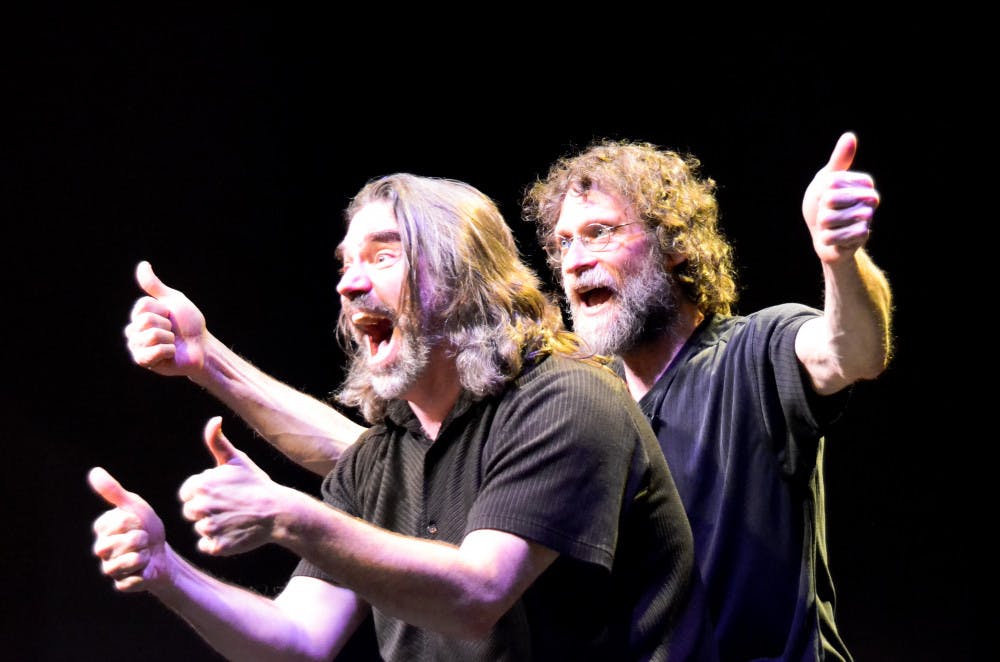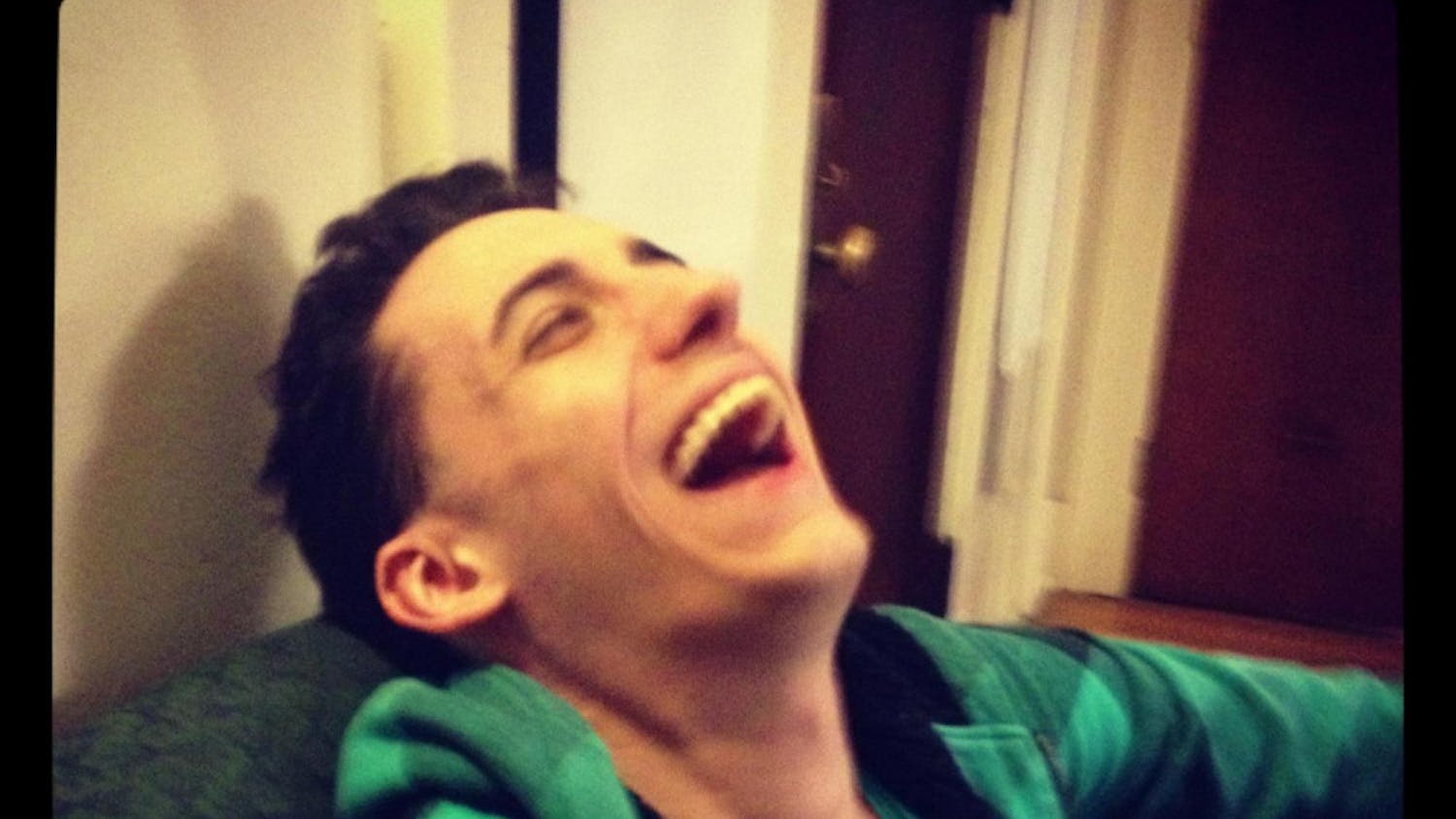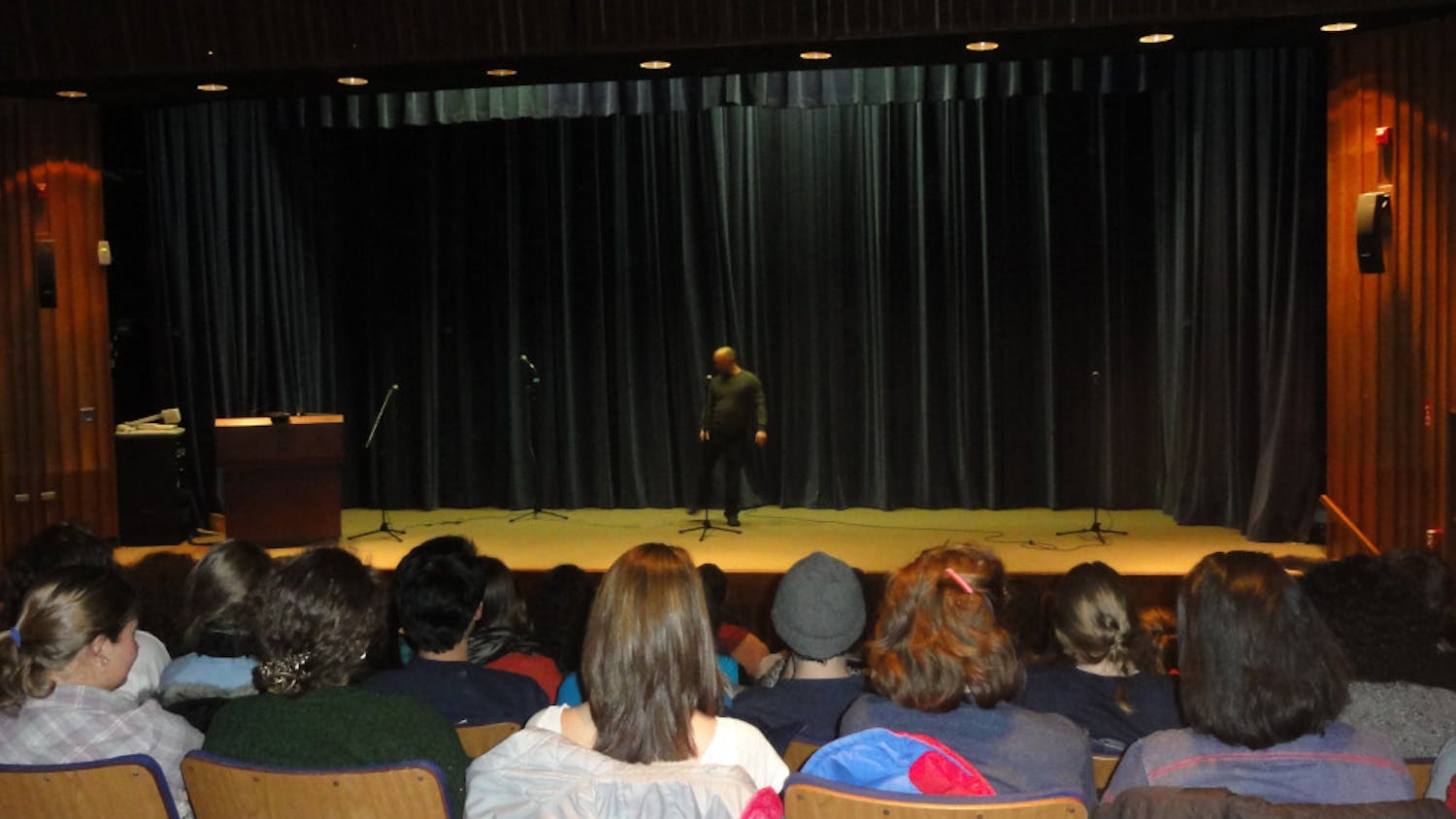Last Saturday night, Feb. 23, words flew in the McCullough Social Space as the American Sign Language (ASL) poetry troupe, the Flying Words Project, took the stage. The event was hosted by Middlebury’s ASL club and sponsored by a variety of campus organizations and departments.
Two poets performed at the event, Deaf Poet Peter Cook and his hearing coauthor Kenny Lerner. They create poems together in ASL and then add words to them so that their performances are accessible to both deaf and hearing communities. Susan Burch, director of CCSRE, taught at Gallaudet University and has strong ties to the deaf community; she described the Flying Words Project as “hands down the most important Deaf poetry artists in America.”
Middlebury’s ASL club first saw the Flying Words Project perform at Dartmouth College in 2010 and since then has been trying to get Cook and Lerner to perform here. Saturday’s event was free of charge and open to the greater community. While Middlebury students made up a majority of the audience, there were a number of town residents in attendance. A handful of members of the University of Vermont’s ASL club also made the journey from Burlington, and the performance was delayed briefly in order to give extra time to people making their way through the inclement weather.
As soon as the pair came on stage, Cook and Lerner captivated the audience, performing a series of poems that pulled from real life events ranging from the recent fire in a Bangladesh factory to their experiences performing in various countries. Many of the poems were quite funny and portrayed the versatility of the duo’s performance style. They also orchestrated a poem about climate change that the whole audience came together to perform.
ASL, as its own language entirely independent from English, does not translate directly into English but instead focuses on using visual signs and gestures to convey meaning. In Lerner’s words, it is “a picture language.” As a hearing person unfamiliar with ASL, seeing the Flying Words Project performance was an experience unlike any I’d had before. Words are very powerful, evocative and arguably taken for granted by most people. Then suddenly during the performance I found that the words Lerner was saying were not enough to truly capture what was happening before my eyes.
Instead, I had to take Lerner’s words and Cooks actions and create a new understanding of my own in order to appreciate the performance. While this was slightly disorienting at first, my brain soon adapted. Seeing Cook’s signs translated into words in real time slowed each poem down into a series of moments. “We play with language,” said Lerner of his work with Cook.
The performance was followed by a lengthy question and answer session in which the duo elaborated on their creative process and the intricacies of performing in other countries. Most nations in which the Flying Words Project has performed have their own official or unofficial sign language, and navigating the differences can be challenging, though Cook is able to pick up the new sign languages with relative ease. Cultural differences also often come into play; what entertains the audience of one nation will not necessarily entertain the audience of another. Cook and Lerner are constantly writing new poems and adjusting established ones.
“Their performance was very impressive,” Jiayi Zhu ’14 said. “It has made me more interested in ASL and Deaf culture. It’s something that should spread and can be shared with other cultures.”
Middlebury’s ASL club hopes to work with the college administration in the near future to create an ASL department that will offer a major and a minor and provide extended language tables.
“The success of the Flying Words Project event shows the obvious interest and need for the development of an American Sign Language academic department here at Middlebury,” said Ada Santiago ’13.5, president of the ASL club. “We [the ASL Club] hope that the administration and the Middlebury community at large will support us in this endeavor to help make Middlebury a more diverse and progressive institution.”
The club also hopes one day to have ASL offered at Middlebury’s Language Schools. So far a petition asking for this expansion of ASL has garnered over 200 signatures. With this growing support, events like Saturday’s are likely to become a more common occurrence on campus.
ASL Poetry Group Performs on Campus

Comments



